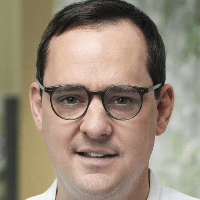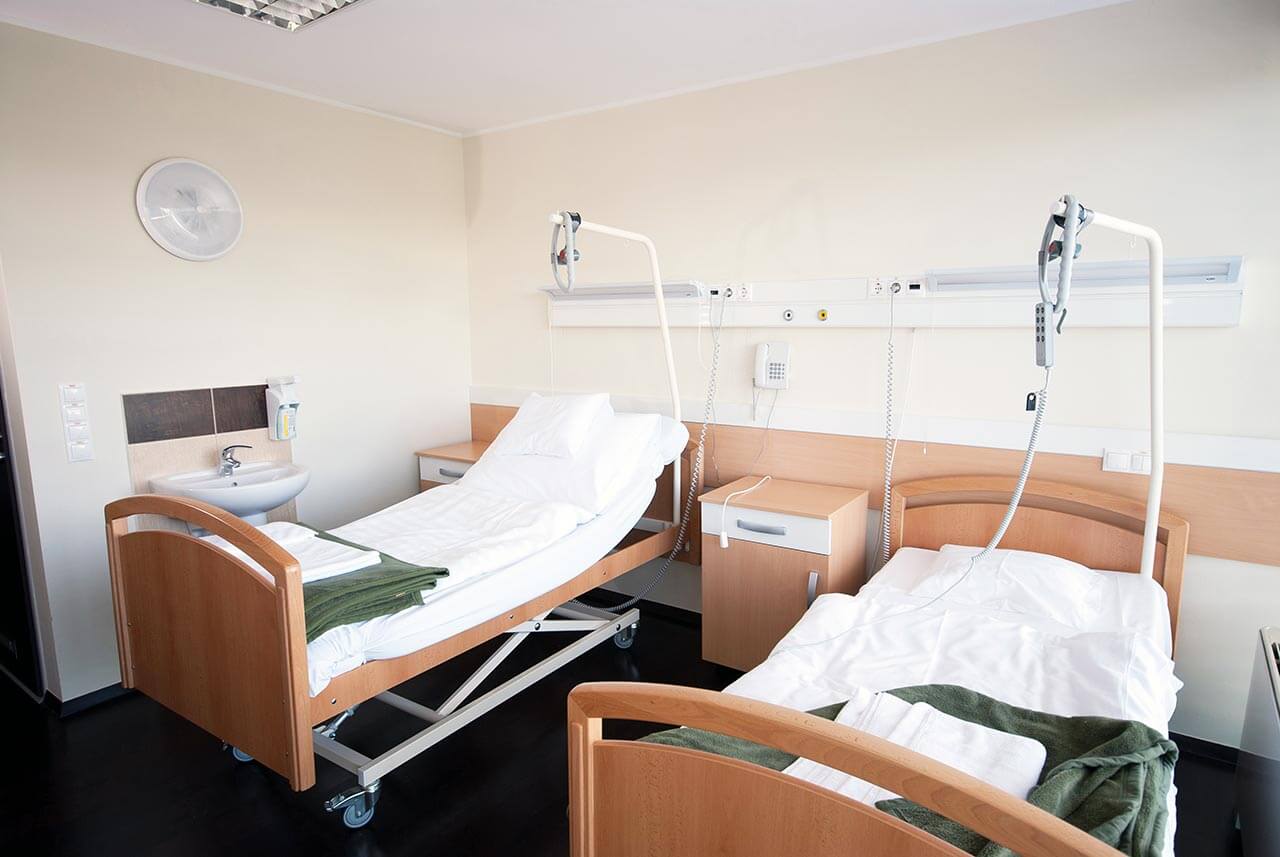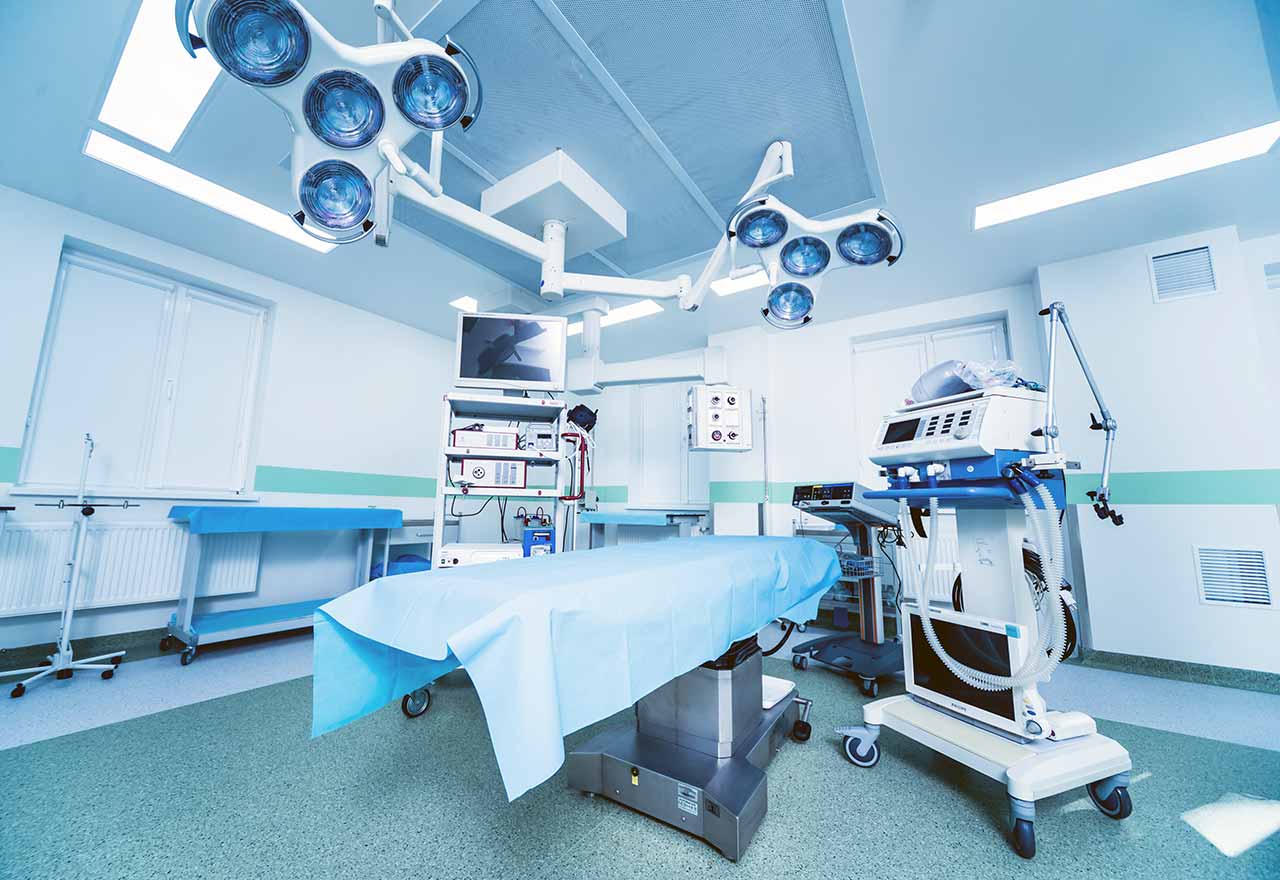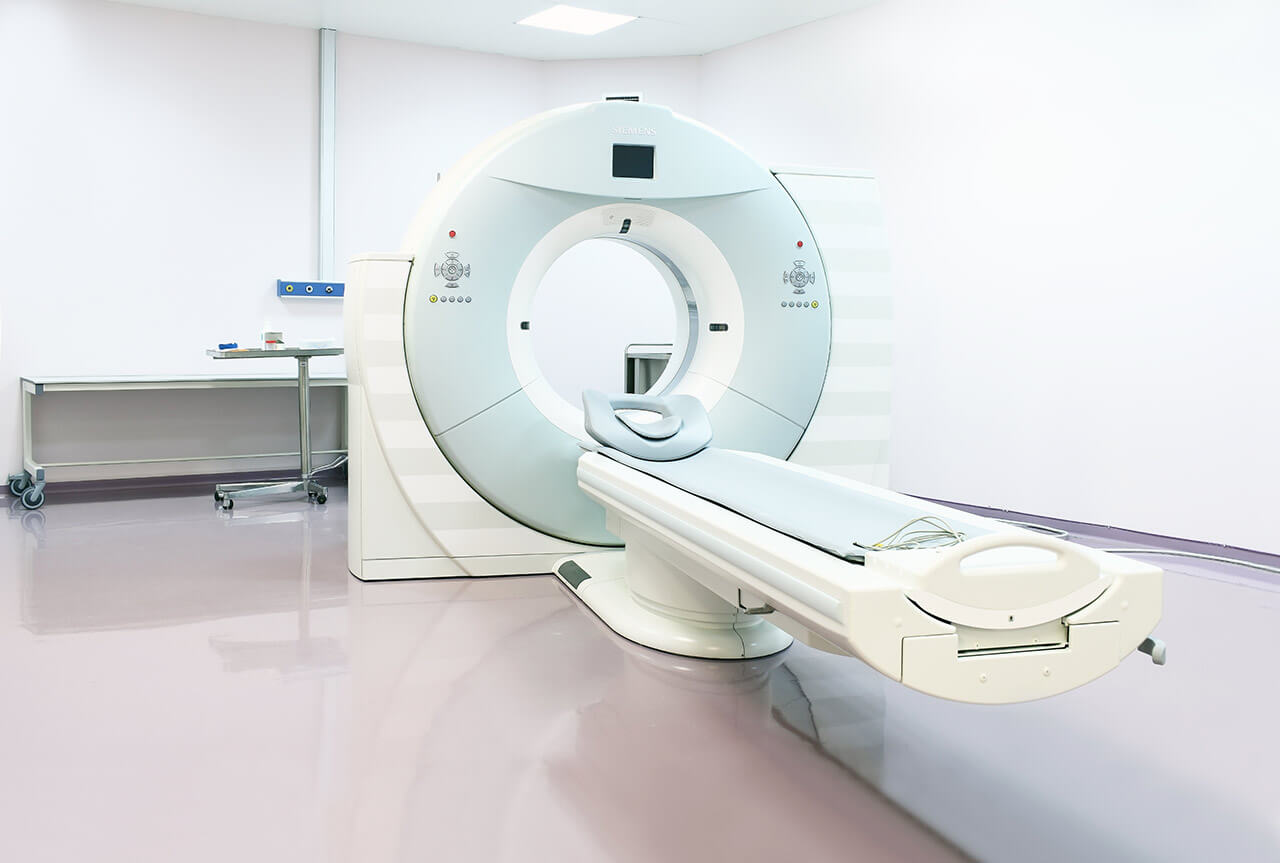
The program includes:
- Initial presentation in the clinic
- history taking
- general clinical examination
- laboratory tests:
- complete blood count
- biochemical analysis of blood
- measurement of hormone levels in blood
- collection of daily urine for hormone analysis
- ultrasound:
- thyroid
- abdomen
- pelvic organs
- adrenal glands
- examination by andrologist/ urologist
- consultation of related specialists
- symptomatic specific treatment
- the cost of essential medicines and materials
- nursing services
- control examinations
- full hospital accommodation
- developing of further guidance
Required documents
- Medical records
Service
You may also book:
 BookingHealth Price from:
BookingHealth Price from:
About the department
The Department of Pediatric Urology at the HELIOS University Hospital Wuppertal offers the full range of diagnostic and therapeutic services in the area of its specialization. The department's clinical activity is focused on providing medical care to young patients with penile and urethral malformations, testicular malformations, kidney and urinary tract diseases, as well as urinary incontinence, including at night. The planning of diagnostic measures and further treatment regimen is carried out in interdisciplinary cooperation – not only urologists work with children, but also pediatricians, radiologists and nuclear medicine specialists. With the results of the accurate preliminary diagnostics, doctors develop the most effective treatment regimen for the child, while choosing conservative methods, if possible. However, a congenital defect in the child mostly requires surgical repair. Urologic surgical procedures in children are often performed using minimally invasive surgical techniques, which reduces the trauma of treatment, thereby relieving the child and his parents from the fear of open surgery. The department is headed by Prof. Dr. med. Friedrich von Rundstedt.
Phimosis is one of the most common congenital malformations of the reproductive system in boys. Phimosis is a pathological condition in which the glans penis cannot be exposed normally due to a too narrow opening in the foreskin. The disease quite often disappears on its own, therefore, until the age of 3 years, the department's specialists recommend only regular examinations. The conservative treatment involves the use of special ointments applied to the foreskin to increase its elasticity. It is also sometimes recommended to use special massage techniques that stimulate an increase in tissue elasticity in the foreskin. If the pathology does not disappear when the child reaches the age of 6-7 years, the question of surgical repair of phimosis is raised. When performing the surgical intervention, the urologist makes a circular incision, after which he mobilizes the foreskin and excises it. The surgical procedure is performed on an outpatient basis.
The medical team of pediatric urologists has excellent qualifications in the treatment of such testicular diseases as undescended testicles and testicular torsion. In the first case, it is recommended to start treatment in the first year of the boy's life, as this will avoid abnormal sperm production. The department's doctors offer hormone therapy as the first-line treatment. If it does not give a positive result, then surgery is performed at the age of 1 year. The operation is performed with the use of modern microsurgical techniques. Testicular torsion diagnosed in a child requires emergency medical care. In such clinical cases, the department's specialists resort to manual detorsion, and if it is ineffective, an urgent surgical intervention is performed.
The department's medical team fully understands that any illness in a child is a huge stress not only for him, but also for his parents, so doctors devote a sufficient amount of time to communication with parents, telling them in detail about a specific urologic disease and possible treatment options. The specialists always give preference to conservative therapy, and resort to surgical treatment only if all other methods have been exhausted.
The department's range of medical services includes:
- Diagnostics and treatment of phimosis
- Diagnostics and treatment of hypospadias
- Diagnostics and treatment of undescended testicle
- Diagnostics and treatment of testicular torsion
- Diagnostics and treatment of renal pelvis stenosis and megaureter
- Diagnostics and treatment of vesicoureteral reflux
- Diagnostics and treatment of recurrent urinary tract infections
- Diagnostics and treatment of bed-wetting (urinary incontinence)
- Diagnostics and treatment of other urologic diseases in children
Curriculum vitae
Prof. Dr. med. Friedrich von Rundstedt is the Head of the Department of Pediatric Urology at the HELIOS University Hospital Wuppertal. The specialist had his clinical training at the HELIOS University Hospital Wuppertal. In 2012, he completed his board certification in Urology, after which he became a Fellow of the European Board of Urology (FEBU). From 2013 to 2016, Prof. Friedrich von Rundstedt trained at Baylor College of Medicine, Houston, Texas (specialization: oncology and minimally invasive surgery). In 2016, he became a Managing Senior Physician in the Department of Adult and Pediatric Urology at the University Hospital Jena.
Photo of the doctor: (c) Helios Universitätsklinikum Wuppertal
About hospital
According to the prestigious Focus magazine, the HELIOS University Hospital Wuppertal ranks among the top medical facilities in Germany!
The hospital rightfully enjoys the status of the maximum care medical facility and provides its high-quality services in all modern fields of medicine. The hospital operates on the basis of the Witten/Herdecke University, which was opened in 1982 and today is considered one of the best in Germany. Thus, many head physicians of the medical complex are in charge of the corresponding department at the university, which contributes to the close intertwining of research activities and clinical practice. The hospital has long traditions and its own values – the main goal of doctors is to provide comprehensive medical care focused not only on curing the disease, but also on the patient's personal needs.
The hospital has 1,000 beds. The doctors of the medical facility admit more than 50,000 inpatients annually. In addition, more than 100,000 outpatients undergo diagnostic and therapeutic procedures. Such high attendance rates speak for themselves and are undeniable proof of the high-quality medical service of the European level. The medical staff of the hospital has more than 2,500 employees, whose main task is to restore the patient's health and provide him with a decent quality of life.
The hospital has more than 26 specialized departments, as well as many narrowly focused centers and institutes dealing with the treatment of patients suffering from a particular group of diseases: Breast Center, Cancer Center, Cardiology Center, Trauma Center, Spine Center and others. The primary clinical focus of the medical center is cancer treatment.
For more than 25 years, the hospital has been running a special quality management system for medical care, which regulates the aspects of work of the medical staff, compliance with hygiene and safety standards during diagnostics and treatment. Consequently, patients can be sure that their health is in the safe hands of true professionals who work in accordance with the latest medical standards.
Special attention should be paid to the honors of the hospital for excellent patient care. The medical complex has quality certificates from the German Cancer Society (DKG), the German Trauma Society (DGU), the German Cardiac Society (DGK), the German Stroke Society (DSG) and other professional German societies.
Photo: (с) depositphotos
Accommodation in hospital
Patients rooms
The patients of the HELIOS University Hospital Wuppertal live in comfortable single, double, triple and quadruple rooms. Each patient room has an ensuite bathroom with shower and toilet. The standard room furnishings include a comfortable automatically adjustable bed, a bedside table, a wardrobe, a TV and a telephone. The hospital has Wi-Fi (free). For maximum patient comfort, there is a nurse call device on the bedside table. This device allows the patient to control the TV, radio, turn on or off the lights, and adjust the position of the bed.
The patients of the hospital are also offered accommodation in enhanced-comfort rooms. These rooms additionally provide a safe and a free minibar with soft drinks. The enhanced-comfort rooms also have a spacious bathroom with hairdryer, bathrobe, towels and toiletries.
Meals and Menus
The patients of the hospital are offered three meals a day: breakfast, lunch and dinner. The menu offers a variety of delicious dishes to suit all tastes, including dietary and vegetarian options.
The hospital also has a bistro where one can taste delicious hot dishes, cold snacks, desserts, as well as a cup of tea, coffee or refreshments.
The patients staying in enhanced-comfort rooms are offered a separate menu that includes a wider and more refined range of dishes. In addition, fresh fruit, tea, coffee and desserts are delivered to the patient room every day, if desired.
Further details
Standard rooms include:
Religion
The religious services are available upon request.
Accompanying person
During an inpatient program, your accompanying person can stay with you in the patient room or in the hotel of your choice.
Hotel
During an outpatient program, you can stay in the hotel of your choice. Our managers will help you choose the most suitable options.




